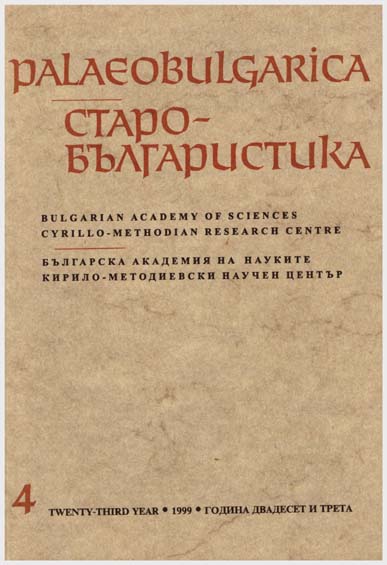Възможни старобългарски свидетелства за древни значения на индоевропейския винителен падеж
Probable Old Bulgarian Evidence of Prehistoric Meanings of the Indo-European Accusative
Author(s): Valentin GeševSubject(s): Language studies
Published by: Кирило-Методиевски научен център при Българска академия на науките
Summary/Abstract: The paper argues that in the Old Bulgarian texts as well as in the older East Slavonic and Polish ones there is some evidence of unusual locative meanings of the accusative. These are rare accusative constructions accompanying verbs which do not mean movement, hence the accusative marker in them does not designate direction but mere place. It is only quite a limited number of nouns or adjectives that occur in such (obviously archaic) constructions. They mean place, side, East, North, South, upper, right, left, end, mouth (of a river), stomach, i. e. they denote entities without any volume or form – relative co-ordinates or parts of objects. What is more, in the Slavonic languages after certain prepositions the accusative means (or used to mean) physical contact while the locative or the instrumental mean (or used to mean) lack of physical contact with the surface of the object. All this gives us reason to conjecture that direction was not the (only) primary spatial meaning of the Indo-European accusative markers and that they originated (at least partially) in markers connected with the form and segments of the objects designating physical contact with their surface.
Journal: PALAEOBULGARICA / СТАРОБЪЛГАРИСТИКА
- Issue Year: 1999
- Issue No: 4
- Page Range: 96-103
- Page Count: 8
- Language: Bulgarian
- Content File-PDF

